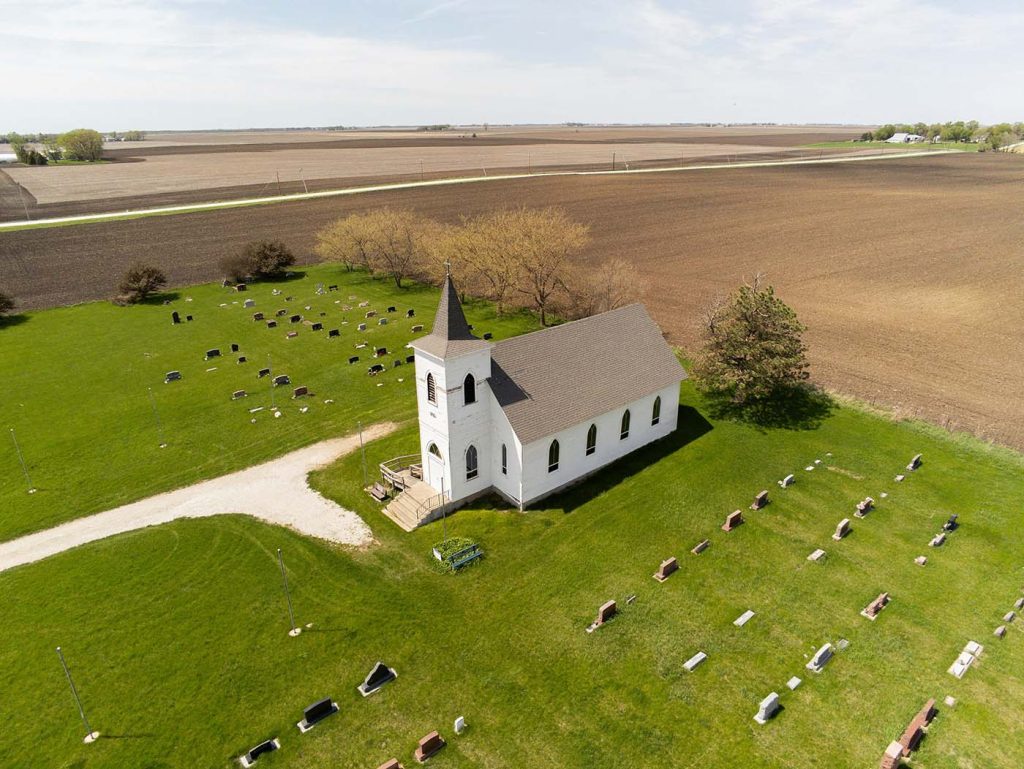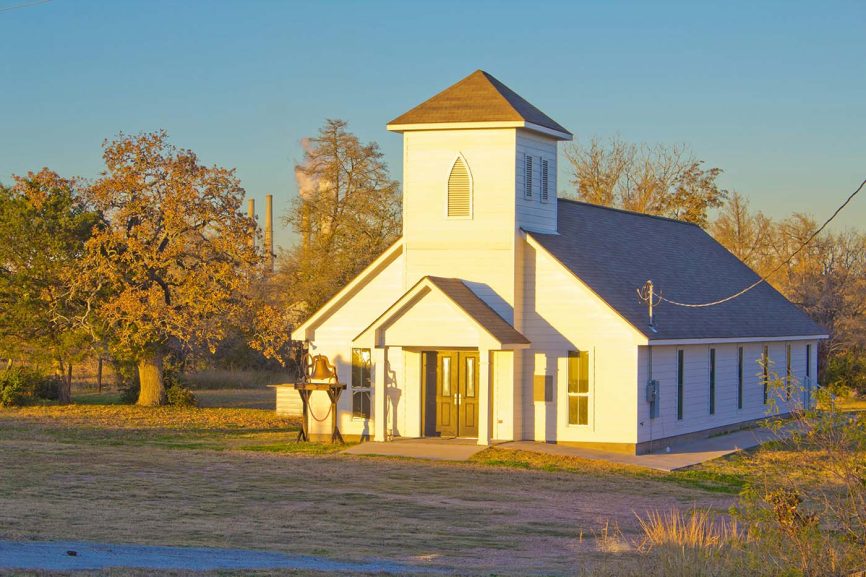by: Rev. Dr. Anna Hall
Rural congregations are often overlooked. Newspaper articles on religion focus either on mega-churches or congregations that are closing. Denominational events and systems can be easiest to access for those in urban areas, close to airports, or with excellent digital connectivity – all of which can be challenges for those in rural areas. Even though our work at Convergence involves supporting many rural congregations through coaching, consulting, and congregational assessments, our blog has only rarely featured articles or research on rural congregations.
Yet many rural congregations are cornerstones of their communities. They add much more to the well-being of their neighbors than we can imagine. They are a bulwark against loneliness and disconnection from those who live far from neighbors. Frequently the sites of first and student pastorates, rural congregations are developing the faith leaders that will carry us into our future.

So let’s talk about the rural congregation! What makes the rural congregation different than those in other settings?
Research suggests that rural congregations share certain characteristics.
- They are intensely relational – everything revolves around relationships
- They tend to measure success by strength of relationships and the well-being of their surrounding community
- They emphasize belonging above all
- Decision-making can be less formal and highly relational
- They have a long social memory of their congregation and surrounding community
- Almost every member is also a volunteer
- They can be weary from meetings and congregational administration
- They can be lay-led in many ways, even if they have paid pastoral leadership
- They often contribute exponentially to their surrounding community in social support and space sharing
Rural congregations’ highly relational and connected nature can be their strength and a source of challenges. If differences of opinion arise, they can feel highly threatening, leading to unhealthy conflict behaviors. When surrounding communities are stressed or strained due to decline, growth, or local politics, the congregation is inevitably drawn into these dynamics. And when relationships are strong, communities are harmonious, and the congregation is unified in its mission and energy, rural congregations make an impact that stretches far beyond those gathered to worship each week.
How can we help our rural congregations thrive?
Whether we are pastors, lay leaders, or those called to support congregations in denominations or nonprofits like Convergence, we can first seek to understand their unique situation and needs. No rural congregation is like any other. Each is as unique as its context and gathered people.
Our first task in helping rural congregations thrive is to dig deeply into their history, stories, and relationships. We can dig deep into how they connect to their surrounding community. We can shift our filters to see and celebrate their highly intertwined and relational ways as potential assets rather than limitations.
We can celebrate the gifts that the rural congregation brings to their members and the surrounding community. Each week’s celebrations can include both numerical and personal stories of impact and love. We can highlight each and every volunteer that makes worship and church life happen every single week.
We can name those situations that feel threatening, such as financial pressure, anxiety about numbers of participants, entanglement with community conflicts, and pray about them. We can teach and build healthy communication behaviors that will serve the congregation and our surrounding community.
We can design new programs and change initiatives that fit the relational and historical fabric of the congregation. Rather than importing a formulaic program written for other contexts, we can seek collaboration from those in the congregation to design any new initiative.
Above all, we can meet rural congregations where they are. They don’t need to look like urban or suburban settings to be a gift in their own right. We can listen carefully to how God is calling a particular group of people to be Christians in their particular community and help them however we can to make that calling a reality.
When we accept that rural congregations are special because of their context, we can love them and support them in the ways they deserve.
If you are in a rural congregation, what are your greatest strengths? Your most pressing needs? As I work to build a body of research on how to best support rural congregations, I would love to hear from you.
If you are not sure about your congregational strengths and challenges, I can also help you through our Convergence Vitality Assessment to take a comprehensive look at your congregation and help you discern next steps. Don’t hesitate to reach out to me with your ideas or questions.
Sources:
https://faithandleadership.com/rural-churches-are-economic-powerhouses-their-communities
https://www.researchgate.net/publication/331906017_Research_Report_The_Marks_of_the_Fragile_Rural_Church
https://www.academia.edu/40641846/Pastoral_Leadership_for_the_Small_Rural_Church_the_Second_Career_Pastor
https://www.cokesbury.com/Fresh-Expressions-of-the-Rural-Church?refq=fresh%20expressions


Comments
Love to see this headline. So pastoral to see an article like this move among people. Even if they aren’t rural, they’ll know someone who is. My heart is with the rural church. I just wrote a booklet on what it means to make faithful choices in the rural or small church.